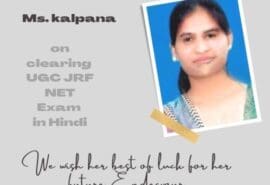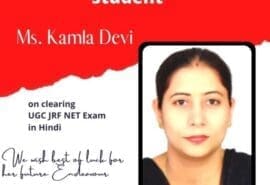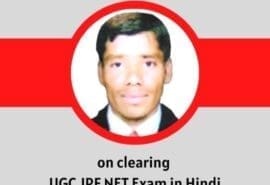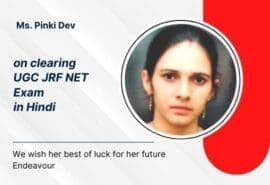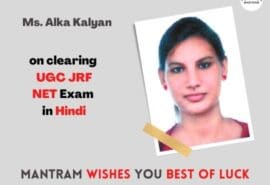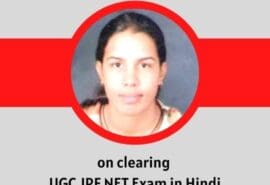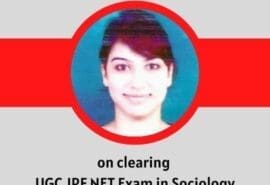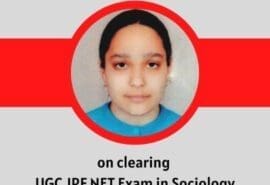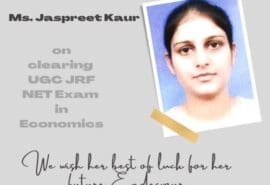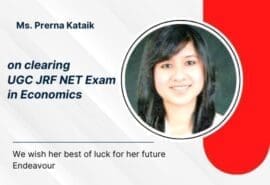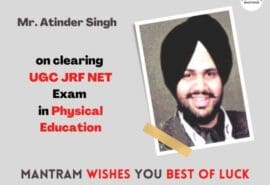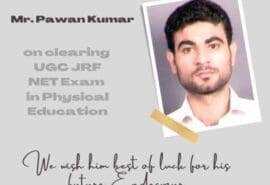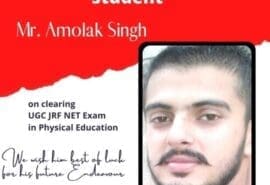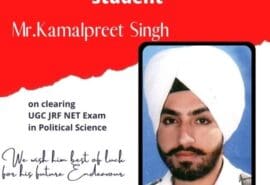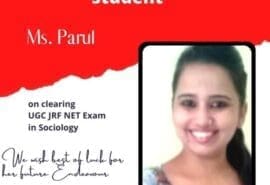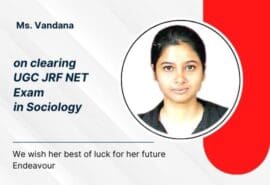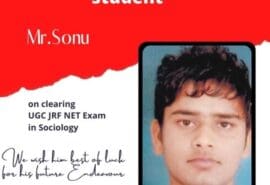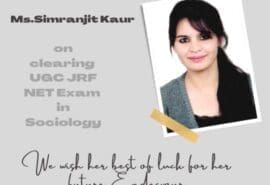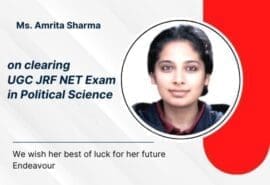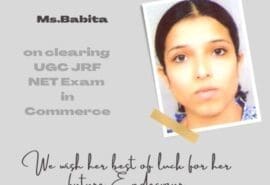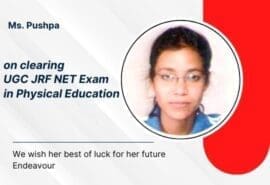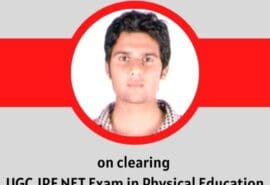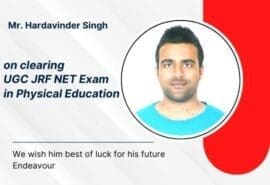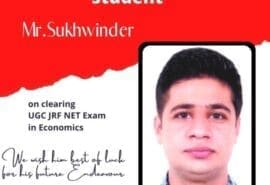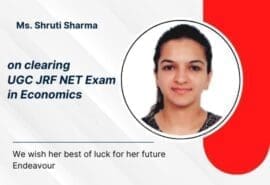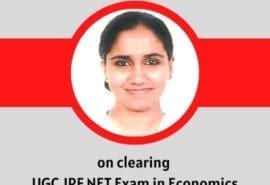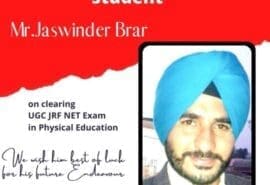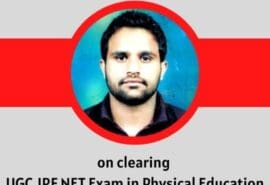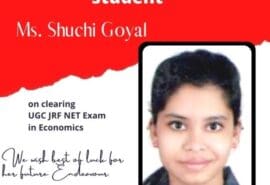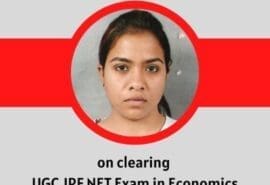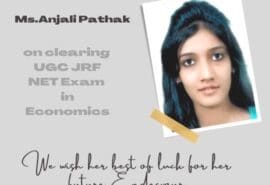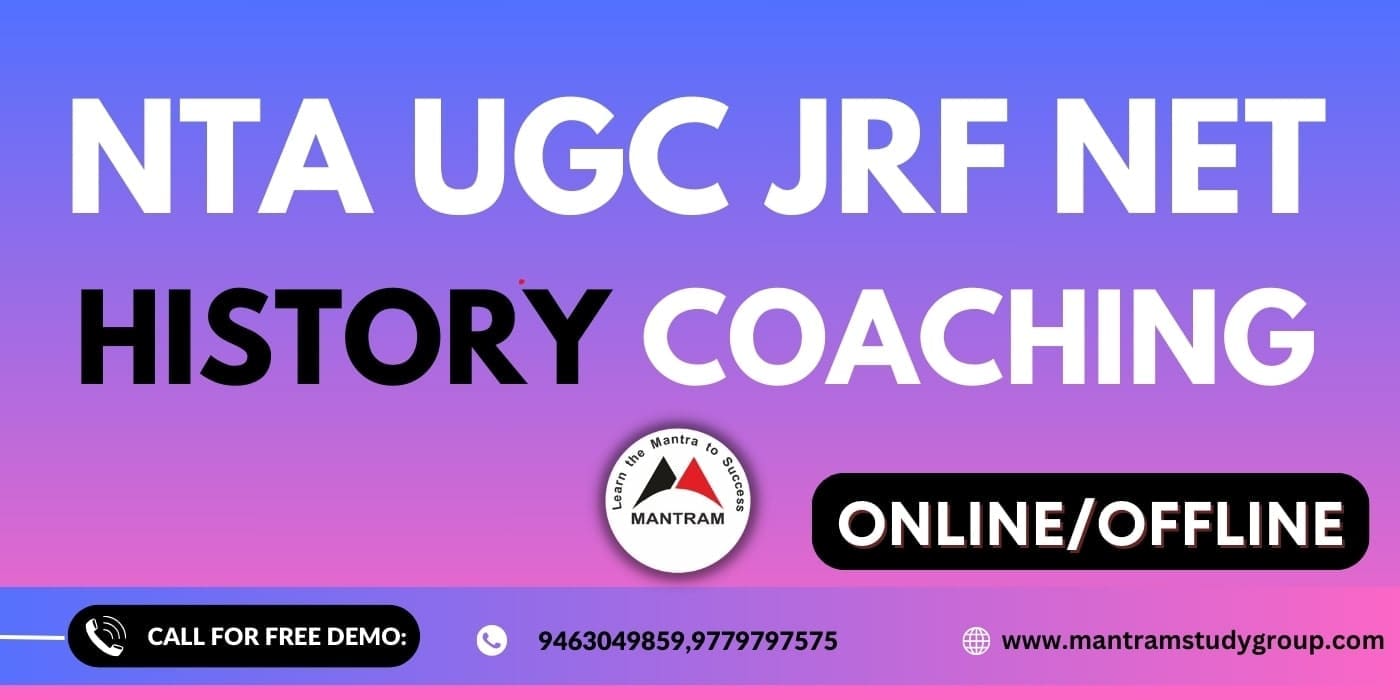
NTA UGC JRF NET History Coaching
NTA UGC JRF NET History Coaching
The National Testing Agency (NTA) conducts the National Eligibility Test (NET) on behalf of the University Grants Commission (UGC) to determine eligibility for lectureship and award of Junior Research Fellowship (JRF).
The UGC NET exam aims to ensure minimum standards for the entrants in teaching professions and research. The History paper for the UGC NET exam tests candidates on various aspects of Indian and world History spanning ancient, medieval, and modern periods. This comprehensive guide explores the UGC NET History exam paper in detail.
UGC NET History Exam Pattern
The NTA UGC NET History paper comprises 100 multiple choice questions of 2 marks each, adding up to 200 marks. The exam duration is 180 minutes. There are no negative markings for incorrect answers.
For CSIR NET Life Science Exam Preparation Coaching, contact us at Mantram Study Group, SCO No. 80-81, First Floor, Sector 15-D, Chandigarh (Near Gate No. 2, Panjab University Chandigarh – Contact – 9779797575/ 9463049859)
The UGC NET History syllabus is divided into 5 units:
- Ancient Indian History - 30% weightage
- Medieval Indian History - 25% weightage
- Modern Indian History and Contemporary World - 25% weightage
- Indian National Movement and Constitutional Development - 10% weightage
- Historiography, Philosophy of History and Historical Sources - 10% weightage
The pattern requires candidates to have in-depth knowledge of events, issues, and developments from ancient to contemporary India and the world.
Ancient Indian History Syllabus
The Ancient Indian History syllabus covers the earliest to 1206 AD. Key topics include:
- Prehistoric cultures - Paleolithic, Mesolithic, Neolithic
- Indus Valley Civilization - Society, economy, art and architecture
- Vedic society and polity
- Rise of Buddhism and Jainism
- Mauryan empire - Administration, art and architecture
- Post Mauryan period - Sungas, Satavahanas
- Gupta Empire - Polity, administration, art, and culture
- The Sangam Age
- Major dynasties of Northern and Southern India
The focus is on understanding the cultural, socio-economic, and political developments in ancient India and analyzing historical evidence, including literary, epigraphic, and numismatic sources.
Medieval Indian History Syllabus
The Medieval Indian History syllabus encompasses the period from 1206 AD to 1757 AD, including:
- The Delhi Sultanate - Enslaved persons, Khilji, Tughlaq, Lodi dynasties
- Provincial kingdoms - Bahmanis, Vijayanagar, Mewar, Mughals
- Bhakti and Sufi movements
- Mughal dynasty - Significant rulers and policies from Babur to Aurangzeb
- Medieval society - Role of women, condition of peasants
- Cultural developments - Architecture, painting, music
Key focus areas are the rise of regional powers, the advent of Islam, consolidation under Mughals, composite culture, and decline post-Aurangzeb.
- Modern Indian History Syllabus
- The Modern Indian History section covers 1757 AD onwards, including:
- Advent of Colonialism - Battle of Plassey
- British administration and policies
- Resistance against the British rule - Revolt of 1857
- Social and religious reform movements - Brahmo Samaj, Arya Samaj, Theosophical Society
- Rise of Indian Nationalism - Moderates, extremists, revolutionary terrorists
- Home rule and constitutional developments
- Significant events - Partition of Bengal, Non-cooperation Movement, Civil Disobedience Movement
- Important leaders of the freedom struggle - Raja Ram Mohan Roy, Dadabhai Naoroji, Bal Gangadhar Tilak, Lala Lajpat Rai, M.K Gandhi, Subhash Chandra Bose
The focus is on critically analyzing British imperialism, social reform initiatives, the growth of nationalism, and the road to independence.
Contemporary World History Syllabus
Key contemporary world history topics include:
- Russian revolution 1917
- World War I and II - Causes and Consequences
- Fascism and Nazism
- Chinese revolution 1949
- Cold War
- Decolonization and emergence of Third World
- Protest movements - Civil Rights, anti-war and feminist movements
- Globalization
The section tests understanding of major global events and processes in the 20th century that shaped the modern world.
Indian National Movement Syllabus
Key areas related to the Indian national movement include:
- Different stages of freedom struggle - Moderates, extremists, Gandhian era
- Home rule league and demand for self-government
- Role of other classes - Peasants, workers, and tribal communities
- Revolutionary terrorism movement
- Communalism led to the growth of the Muslim League
- Important events - Non-cooperation, civil disobedience, quit India movement
- Partition and independence
The focus is on critically analyzing the personalities, ideologies, and events that led to India's independence.
Historiography, Philosophy Syllabus
This section covers:
- Schools of Indian historiography
- Contributions of eminent historians - RC Majumdar, Jadunath Sarkar, Romila Thapar
- Historical methods - Use of interdisciplinary perspectives
- Nationalism and communalism debates - Origins of Aryan culture
- Philosophy of History - Cyclical, linear, Marxist
- Primary sources - Literary, archaeological, and oral sources
The paper checks interpretative skills in analyzing historical evidence and debates.
Preparation Strategies
To prepare effectively for the expansive History syllabus, candidates should adopt the following strategies:
- Read NCERT textbooks for a preliminary understanding
- Refer to books by eminent authors and historians
- Solve previous years' question papers to understand important focus areas and format
- Improve recall of factual information through timelines and mind maps
- Participate in online test series for regular assessment
- Work on enhancing retention through mnemonics and discussions
- Practice writing answers to sample questions within word limits
- Identify weaknesses and revise problematic topics
- Preserve mental calm with yoga and meditation
By adopting a strategic approach, candidates can aim to score high in this paper.
Conclusion
The UGC NET History paper tests candidates on a vivid spectrum from ancient to contemporary History of India and the world.
The exam requires an in-depth understanding of socio-political issues and an analytical interpretation of historical evidence.
Aspirants can maximize their scores by adopting an integrated preparation strategy focused on crucial topics and honing test-taking skills.
A thorough and strategic preparation plan will help candidates successfully qualify for this exam and achieve their goal of a lectureship or research fellowship.
FAQ
How do I get JRF in History?
This comprehensive guide explores the best strategies for excelling in the UGC NET History exam and securing the JRF.
UGC NET Exam Pattern
The NTA UGC NET exam comprises 2 papers:
Paper 1 – General test assessing teaching/research aptitude, reasoning, comprehension, etc.
Paper 2 – Subject-specific paper evaluating grasp of the elaborate History syllabus
To qualify for JRF, candidates must secure a minimum of 55% in Paper 1 and 60% aggregate in both papers.
Detailed Preparation Tips
Follow these key preparation strategies spanning across all critical areas:
Analyze Syllabus Thoroughly
Start by carefully studying the detailed UGC NET History syllabus to determine the key focus areas:
- Ancient, Medieval Indian History
- Modern Indian and world history
- National Movement
- Historiography
This helps frame a streamlined study plan efficiently, allocating time across diverse periods.
Study Extensive Reading Material
Refer to extensive reading materials like:
- Standard textbooks - NCERT, Norman Lowe for world history
- Books by eminent historians - Romila Thapar, RS Sharma
- Relevant research papers to enrich perspective
Cover events, issues, evidence, and debates related to socio-cultural developments across kingdoms, artistic heritage, religions, etc., in-depth.
Improve Retention of Facts
To recall vast factual information, utilize:
- Timelines/chronology constructing
- Mind maps illustrating concepts visually
- Mnemonics, charts, and notes for quick revision
Such representations structurally organize data, boosting retention.
Practice Previous Question Papers
Solving previous years' papers helps gauge the following:
- Commonly examined topics
- Nature of questions – fact-based, analytical passages
- Difficulty level & variations over the years
This enables honing exam-oriented skills.
Attempt Mock Tests
Appearing for mock tests has myriad benefits:
- Working against time enhances speed
- Evaluate preparedness level through scores
- Helps bust stress through simulation
Rigorously attempting test trains to deliver the best performance in the exams.
Strengthen Short Answering Skills
Answers must convey complete information precisely within the stipulated word limit. Hence, regular practice answering sample questions curtails unwanted details and makes writing crisp.
Write for History Optional in UPSC CSE
Attempting the History optional paper in the UPSC exam can tremendously elevate subject understanding to the level expected of a researcher. It takes conceptual clarity to the next level.
Stay Abreast With Current Affairs
Connecting History with contemporary current affairs during preparation makes it relatable and engaging. Download news apps and observe how past events have shaped issues facing the world today.
Preserve Mental Peace
History preparation demands immense rigor. To sustain energy and efficiency, indulge in:
- Meditation
- Light Music
- Good sleep routine
Avoiding burnout is key to peak performance.
Time Management
Set a well-paced daily plan allocating sufficient time for self-study, solving questions, revision, mock tests, etc., creating an optimal balance. Prepare personalized notes for topics posing difficulty.
Healthy Diet
Eating a balanced, nourishing diet ensures good brain health and alertness, facilitating productive study spells. Stay well hydrated.
Believe in Yourself
Stay confident of your own capabilities. Analyze areas needing improvement and ensure you achieve milestones through dedicated efforts.
With meticulous preparation per the above-listed methods, one can dream of securing the coveted JRF tag.
What is the syllabus of net JRF History?
The National Eligibility Test (NET) conducted by the NTA aims to determine eligibility for the position of Assistant Professor or award of Junior Research Fellowship (JRF) in Indian universities and colleges. We examine the detailed syllabus for the History paper to help aspirants prepare a strategic study plan.
Exam Pattern
The 3-hour NTA UGC NET History exam comprises 100 multiple choice questions of 2 marks each, totaling 200 marks. No negative marking applies for incorrect answers.
Ancient Indian History Syllabus
The elaborate Ancient Indian History syllabus entails 30% weightage spanning earliest times till 1206 AD. Core focus areas are:
Prehistoric Cultures and Harappan Civilization
Key topics include:
- Paleolithic, Mesolithic, and Neolithic ages - Economic development, society, art
- Origin, extent, urban planning, art, and religion of the Indus Valley civilization
- Vedic culture – Polity, society, economy
This section tests knowledge of prehistoric communities, Harappan culture, and Vedic age foundations.
Religions – Buddhism and Jainism
Crucial areas are:
- Causes for their origin, basic principles, literature, role of important leaders
- Their impact on Indian culture and philosophy
Mauryan Dynasty
Important focus points encompass:
- Chandragupta's conquests, administration under Ashoka, and his Dhamma
- Art and architecture during the Mauryan rule
Understanding the landmarks under India's first empire and the aftermath of Ashoka's rule is vital.
Post-Mauryan Period
Questions feature on:
- Significant dynasties like Sungas, Satvahanas, and Kushanas - cultural contributions, administration, etc.
- Gupta dynasty - Administration, literature, science achievements
- Major kingdoms of North and South India
The rich temple art traditions and the growth of regional powers are gauged here.
Medieval History Syllabus
This covers 25% of the syllabus from 1206 AD to 1757 AD, encompassing:
Delhi and Provincial Dynasties
Core areas of focus include:
- Slave Dynasty - Art and architecture
- Tughlaq's fiscal policies, Khilji's administration, and military conquests
- Lodi dynasty and emergence of Provincial powers
Crucial developments leading to the Delhi Sultanate's zenith and gradual decline features here.
Mughal Empire
Key aspects tested are:
- Babur's early conquests, Akbar's administration, policies of Aurangzeb
- Mansabdari system, religious ideas, and Rajput policy
Questions test grasp over the landmarks and downfall.
Bhakti Movement
The role of saint scholars like Ramanuja, Basavanna, etc., and the emergence of the Bhakti cult across India is important.
Provincial Architecture
Understanding temple architectural styles like Nagara, Vesara, and Dravida and the unique Vijayanagara-Kakatiya-Hoysala patterns is vital.
Modern History Syllabus
This 25% section evaluates knowledge from 1757 AD till the present, covering key areas:
Colonial Administration
Crucial focus points are:
- Economic policies – Drain theory and Laissez Faire
- Reforms and Governor Generals' tenure – Cornwallis, Wellesley, etc.
- Revolt of 1857 – causes, outcomes, end of EIC rule
British territorial expansion and exploitative regulations are assessed here.
Socio-Religious Reform Initiatives
The contributions of movements like Brahmo Samaj, Young Bengal, Aligarh movement, and the work of Raja Ram Mohan Roy, Vivekananda, etc., are featured here.
The Advent of the Gandhian Era
Questions gauge understanding of:
- Different stages of freedom struggle – Moderates, extremists, revolutionaries
- Gandhi's role, civil disobedience movement, important Congress sessions
Transition to independence through Gandhian mass mobilization is tested.
World History Section
Crucial areas encompass:
- Russian and Chinese revolution
- World War I and II – causes, outcomes
- Rise of Nazism and Fascism
- Cold War and the emergence of Asian and African countries
- 20th-century developments reshaping global order are covered.
Historiography and Methods Syllabus
This 10% section covers:
- Scholarship of eminent historians like RC Majumdar, DN Jha, Romila Thapar
- Nationalist, Marxist, and Subaltern schools
- Interdisciplinary historical research integrating literary and archaeological evidence
- Key historical debates – Aryan migration, Harappan religion
Interpretative and literary analysis skills are tested here.
Many aspirants need help with opting for the History paper. We analyze whether History is a viable choice.
Lucrative Career Prospects
Qualifying for the UGC NET opens doors for an illustrious career, including:
- Assistant or Associate Professor jobs in central/state universities across India
- Fellowship leading to a PhD enabling entry into academia and research organizations
- Opportunities to publish papers and books expanding influence
UGC NET is the perfect route for History enthusiasts with a passion for teaching or research. Ambitious and determined candidates can excel in this field.
Analytical Subject Fit for Researchers
History hones brilliant analytical and interpretation competencies vital for researchers, including:
Attention to Detail: Analyzing maps, coins, artifacts, and excavation data requires keen observation
Objective Interpretation: Weighing literary versus archaeological evidence to reconstruct the past accurately demands critical thinking
See Relationships: Identifying connections between societal developments across diverse civilizations calls for perceptiveness.
Logical Organization: Classifying events chronologically and identifying causes and effects of major incidents boosts structured thinking
All these faculties prime candidates well for research or academic roles.
Enhances Multi-disciplinary Knowledge
Preparing for UGC NET History extensively expands awareness across:
Politics - Statecraft strategies of emperors like Chandragupta and Akbar
Economics - Agrarian and trade policies of rulers impacting treasury and people
Philosophy - Evolution of Thought from Upanishads to Advaita School
Arts and Literature - Understanding temple styles inspired by Bharatanatyam or contributions of Kalidasa and Panini
It provides well-rounded general knowledge beyond dates and events appreciated in teaching jobs.
Manageable Competition
Unlike technical subjects, aspirants opting for history papers are relatively less, making the competition ratio lower than in management, economics, or political science.
In 2020, only 8.3% of candidates opted for History versus 19.3% in Economics and 17.6% in Political Science. This allows better chances of securing fellowship or lectureship for diligent aspirants.
Higher Award Rate for Fellowships
Per the latest UGC statistics, below 15% of candidates cleared NET in 2020 across all subjects. However, in History specifically, 21% were declared qualified. Further, 36 candidates secured JRF versus an average of ~10 in other subjects.
This indicates a relatively higher percentage of fellowship awards due to low applicant count, making the hard work rewarding.
Exciting Course Material
History isn't limited to dreary dates or chronicles of kings. The UGC NET syllabus encompasses interesting facets like:
- Indus Valley Trade Networks – Unravel mysteries of the flourishing civilization decay
- Ashoka's Reign – Understand the great Mauryan King's rise post the Kalinga war and his progressive policies
- Bhakti Movement – Learn about the powerful saint poets who shaped literature and arts
- Revolt of 1857 - Analyze reasons behind the rebellion against Company malpractices
The wide spectrum spanning diverse ruling eras makes studying engaging.
Methodical Preparation is Key
However, the huge syllabus and predominance of facts pose challenges. Smart preparation strategies are vital:
- Categorize events-based ante/post-independence, overcoming the vastness
- Use memorizing techniques like mnemonics, charts, mind maps, timelines, etc.
- Refer to concise study materials blending facts with analysis
- Extensively practice previous year's question papers identifying focus areas and patterns
- Rigorously test through mock exams replicating real-time conditions
Concept clarity combined with robust memory and exam-focused competencies enhances success probability.
Promising Future Scope
With high-quality research or training experience gained through UGC NET qualification, historians over time can progress to:
- Senior faculty - Professor, HOD roles in Ivy League colleges
- Think Tanks and Policy Organizations
- Historical Associations and Govt. Advisory
- Senior Editors of Knowledge publications
- Independent historians and authors
Thus, History offers a thriving avenue for erudite intellectuals.
Is History a good subject for UGC NET?
The University Grants Commission National Eligibility Test (UGC NET) opens up career opportunities in lecturership and research. Many aspirants deliberate whether opting for a history subject has scope and viability. We explore the pros and cons of selecting the History paper for qualified opinions.
Merits of Choosing History Subject
Below are the key merits that make History a prudent choice:
Develops Analytical Ability
Preparing for ancient, medieval, and modern History spanning millennia requires sharp analytical skills to:
- Objectively evaluate interconnections between socio-political events
- Interpret literary versus archaeological evidence
- Identify economic and ideological undercurrents behind power struggles
Such multidimensional analysis primes one effectively for research and teaching.
Aids Comprehensive Understanding
From the statecraft of rulers to farming techniques to the evolution of art forms – History allows a panoramic view across:
- Politics - Chanakya's Arthashastra; Ashoka's welfare policies
- Society - Caste conflicts; women's status over time
- Religion - Bhakti versus Vedic rituals; Advent of Islam
- Economy - Agrarian systems; trade guilds
It enhances well-rounded general knowledge.
Promising Career Scope
Qualifying UGC NET opens avenues including:
- Faculty/Research roles in reputed institutes
- Archiving, Museum Curation jobs
- Policy research organizations
- Publication houses
- Passionate historians can thrive in these domains.
Lower Competition Than Technical Subjects
In 2020, only 8.3% of applicants chose History versus 19.3% in Economics or 17.6% in Political Science. Thus, the contest is less intense.
Moderate competition increases the probability of the JRF award. In 2020, 36 qualified in History versus ~10 in Technical subjects.
Demerits of Opting for History
However, a few downsides exist:
Vast Syllabus
The expansive ancient to contemporary History syllabus and factual richness pose huge demands on memory. Rigorous revision is indispensable.
Question Format Needs Adaptability
The nature of questions - lengthy passages, factual recalls, analytical concepts – requires practice to adapt.
Current Affairs Integration Crucial
Integrating contemporary contexts like the Ukraine crisis, Budget policies, etc., is vital for scoring high. This demands additional effort.
Multi-lingual Competence Advantageous
Knowledge of Persian or Urdu for interpreting Mughal dynasty texts and Tamil and Telugu for Sangam literature helps historians. This expects language skills.
Is net in History difficult?
The History paper features popular subject choices. We analyze the common perception that qualifying NET History is challenging.
Diverse Periods Span Vast Syllabus
Predominantly, aspirants find the sheer vastness of 5000 years spanning ancient, medieval, and modern Indian and world history difficult to handle, including:
- Myriad ruling dynasties – Mauryas, Guptas, Delhi Sultanate, Mughals
- Scores of invaders, war conquests – Alexander, Chengiz Khan, Babur
- Diverse temple architecture influences – Buddhist, Hoysalas, Cholas
- Numerous British Governor Generals, policies, and freedom struggles
This diversity across periods poses huge demands on revision and retention—the challenge multiplies since most questions test factual knowledge more than just concepts.
Complex Question Formats
Secondly, the questions can perplex candidates used to direct fact-based testing in sociology or political science. Questions encompass:
- Lengthy passages to interpret from original historical texts
- Visual analysis of monuments, paintings, artifacts
- Evolution of traditions across ruling eras
- Interconnections between varied events or issues
These expect multidimensional analytical abilities versus just factual recall.
Requires Inter-disciplinary Skills
Further, History preparation expects beyond textbook reading to analyze aspects like:
- Societal structures, agricultural systems, and guilds operations impacting the economy
- Philosophical thought progression from Upanishads to Advaita school
- Assimilating political drivers, religious movements, rulers' ideologies shaping policies
Therefore, aspirants must grasp a range of inter-related concepts from humanities subjects, not just dates of battles won.
Demands Current Affairs Integration
Moreover, while the majority portion checks understanding of past events, integrating with modern contexts is also crucial. For instance, interpreting post-USSR collapse world order and emergency not just from the Indian freedom angle but also from global geopolitics. This requires contemporaneous affairs awareness, too.
Enhances Language Skills
Lastly, since history study relies heavily on interpreting literary evidence like Baburnama or Sangam texts in their original form, knowledge of languages like Persian, Urdu, and Tamil proves advantageous to excel beyond ordinary scores.
The collective weight of the above factors alarms aspirants about attempting the paper. However, planned study and question-solving can dismantle the above roadblocks.
Strategies to Simplify Preparation
Below are key strategies that can defuse the above difficulties:
- Categorize events based ante/post-independence, overcoming the vastness
- Use memorizing techniques like mnemonics, charts, and mind maps extensively
- Refer to concise study materials blending facts with analysis
- Extensively practice previous year's question papers identifying focus areas and patterns
- Rigorously test through mock exams replicating real-time conditions
- Brush up on current affairs, at least the last 1 year's events mapping world history connections
- Build language skills for better interpretation
By adopting the above regimen diligently, the complexity is reduced. Confidence, not perception, truly determines exam difficulty. Structured preparation with vigor and self-belief conquers the above challenges, enabling aspirants to qualify successfully.
What is the benefit of JRF in History?
The Junior Research Fellowship (JRF) in History awarded to qualifying candidates in the UGC NET exam opens gateways to an enriching career. We elucidate the manifold merits that make this fellowship highly coveted.
Direct Entry to Ph.D. Program
Clearing NET JRF allows direct admission to PhD programs in reputed universities, including:
- Jawaharlal Nehru University
- University of Delhi
- Banaras Hindu University
- University of Hyderabad
- Calcutta University
This accelerated entry into advanced research, avoiding lengthy entrance exams, is the biggest perk.
Hassle-Free Research Funding
Qualified JRF recipients receive handsome monthly stipends for the first 2 years of PhD enrollment alongside annual contingency expenses grant covering:
- Books and Stationery
- Laptop and Data charges
- Travel allowance for conferences, seminars
Ranging between ₹31,000-35,000 monthly stipends, the scheme aids historians in immersing completely in doctoral research, free of financial burdens.
Platform to Publish Research Papers
Through comprehensive research work for a Ph.D. thesis, historians get opportunities to author research papers and books, including:
- Findings from primary evidence analysis - Archaeological discoveries, Literary texts
- New perspectives on past events – Religion evolution, Agrarian economy
- Biographical sketches on eminent personalities – Chanakya, Rani Laxmibai
Publishing builds authority, helping elevate as field experts.
Global Exposure through Events
JRFs can participate in seminars and conferences worldwide to exchange ideas with international peer groups, aiding a global outlook beyond academics.
Lucrative Job Avenues
On completing PhD, abundant career openings arise in:
- University professorship – Entry-level Assistant Professor to Senior Faculty
- Think Tanks and Policy Research groups
- Heritage Conservation Organizations like ASI
- Senior Editors of History Journals
Highly rewarding avenues for erudite researchers beckon JRF-qualified candidates.
Enhanced Learning Experience Abroad
JRFs secure additional scholarships for short research stints in acclaimed foreign universities to gain global exposure—E.g. Fulbright Scholarships in the USA.
Academic Flexibility
No bond or service liability exists for JRFs. Hence, historians enjoy the flexibility to pursue interests like additionally:
- Authoring popular history books, building a personal brand
- Curating Digital Archives and podcasts on niche topics
- Consultative roles in multiple institutes
Overall Personality Development
The 4+ years of PhD studies shape fine intellectual qualities beyond academics, including:
- Time management, prioritizing deadlines
- Communication abilities through presentations
- Interpersonal skills collaborating with guides, reviewers
- Leadership and mentoring skills guiding junior researchers
This aids maturity to take on higher responsibilities like HOD roles.
Thanks for visiting our website Mantram Study Group
You may also join Mantram for NORCET Coaching
CHECK OUR OTHER LINKS: -
Testimonials
FAQ
Q. How to prepare for net JRF History?
To excel in the UGC NET History examination, candidates are encouraged to engage in 3-4 mock tests. These tests, including full tests, chapter-wise tests, and topic-wise tests, are instrumental in understanding the exam pattern, reinforcing knowledge, and ensuring all studied material is well memorized and understood.
Q. Is net JRF History tough?
Regarding the difficulty level of the NET JRF History exam, it was conducted by the National Testing Agency (NTA) on December 6, 2023. The exam, held from 3 pm to 6 pm, was assessed by many to be of moderate to difficult level, showing an increase in complexity compared to the previous year.
Q. What is the stipend for JRF History?
For those aiming for a Junior Research Fellowship (JRF) in History, the Indian Council of Historical Research (ICHR) provides a stipend aimed at PhD candidates in historical studies. This stipend amounts to ₹17,600 monthly, with an additional contingency allowance of ₹16,500 annually for two years.

